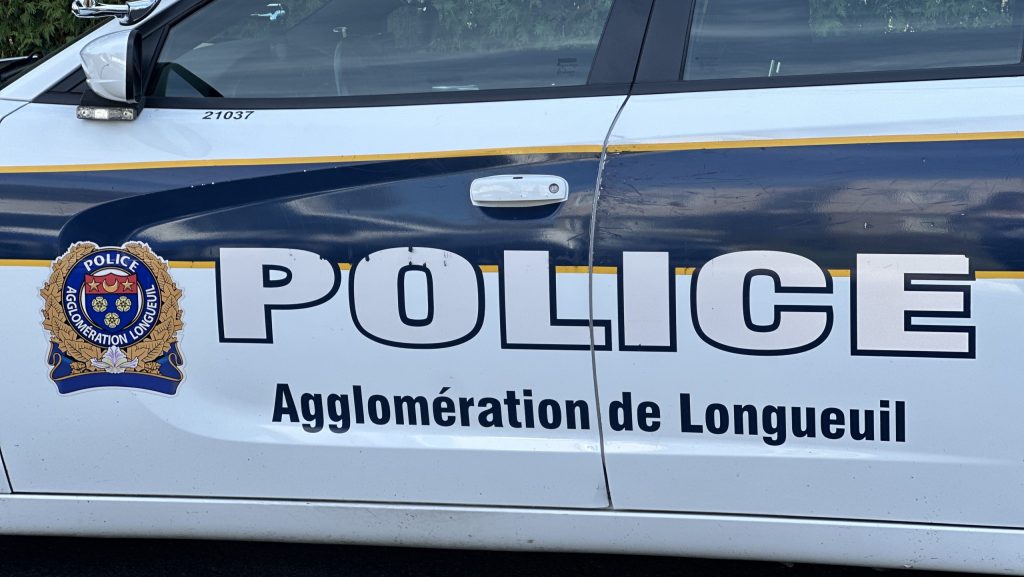Chinatown homeless shelter closes after violence, crime complaints from merchants and residents

Posted August 15, 2023 12:42 pm.
Last Updated August 15, 2023 6:23 pm.
A homeless shelter in Montreal’s Chinatown will be closing following multiple complaints from businesses and residents who say they have been the target of criminal acts and violence related to drug consumption and homelessness.
“The city is not taking care,” says Benny Shek the owner of Kim Fung he looks out a window at individuals doing drugs, “They sell their drugs, they fight..everyday is the same,” Shek adds that the amount of individuals that he has seen is not a few, its well close to one hundred.
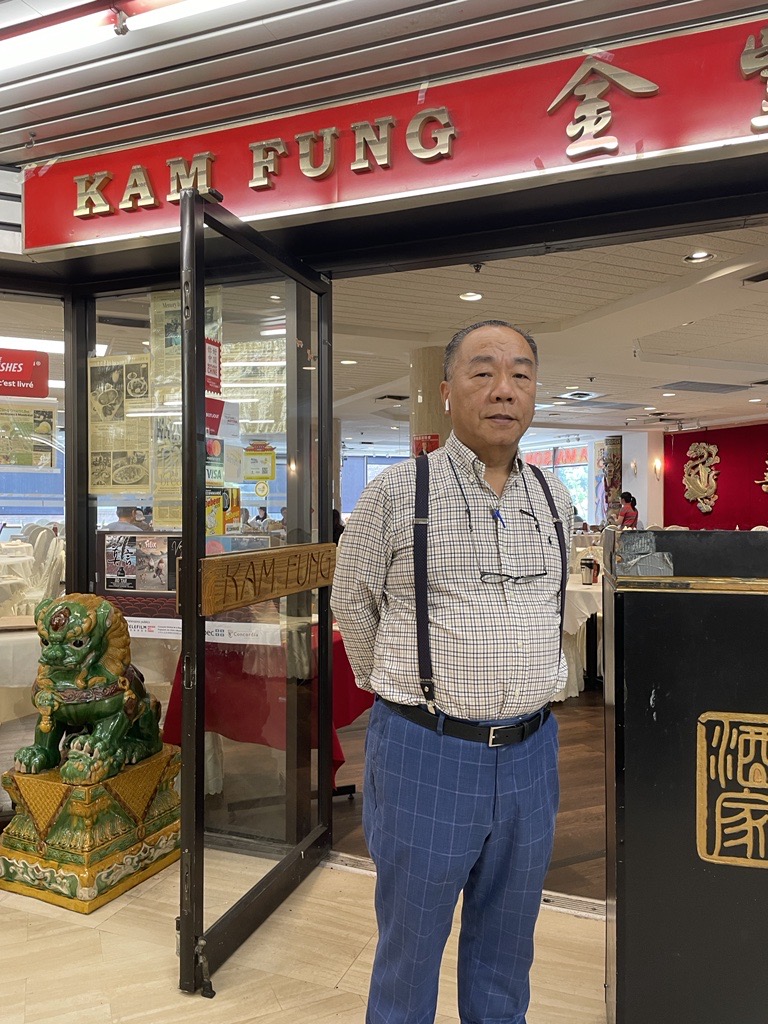
Benny Shek owner of Kim Fung says he’s seen the problem for years, now it’s become over bearing, he’s not alone.
(Felisha Adam, CityNews Image)
“The City need to find long term solution, not move them to anywhere,” Shek adds, he like many others are asking for the situation to be thoroughly looked at, and simply moving those who are experiencing homelessness is not enough.
“It’s chaotic here,” says long time Chinatown resident Bill Wong. Wong says he is happy to see the closure of the homeless shelter, adding that it was something that was done without consultation by the city.
“The residents are scared, for the security and even now, you know, nobody wants to walk in the nighttime…A lot of people have moved out of this complex because of the noise, the disturbance, the vandalism and I think it’s time to put a stop to all that,” Wong calling on the city and the province to provide the care needed to help those vulnerable in the area.
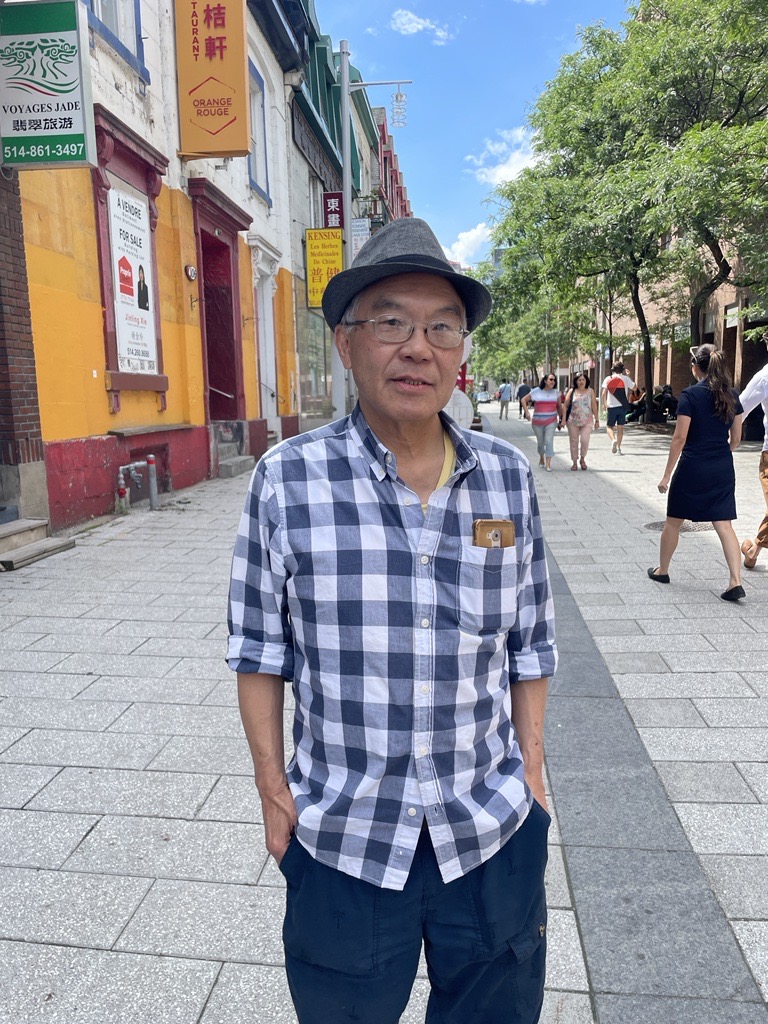
Bill Wong a resident of Chinatown for 16 years, says he’s fed up.(Felisha Adam, CityNews Image)
At a press conference last month, community members shared their concerns. Those living and working in the area for many years said they have never felt so unsafe.
“Knowing that people are scared is not what we want. Nobody wants that. We want anybody to feel so safe in Montreal,” said Mayor Valérie Plante Tuesday.
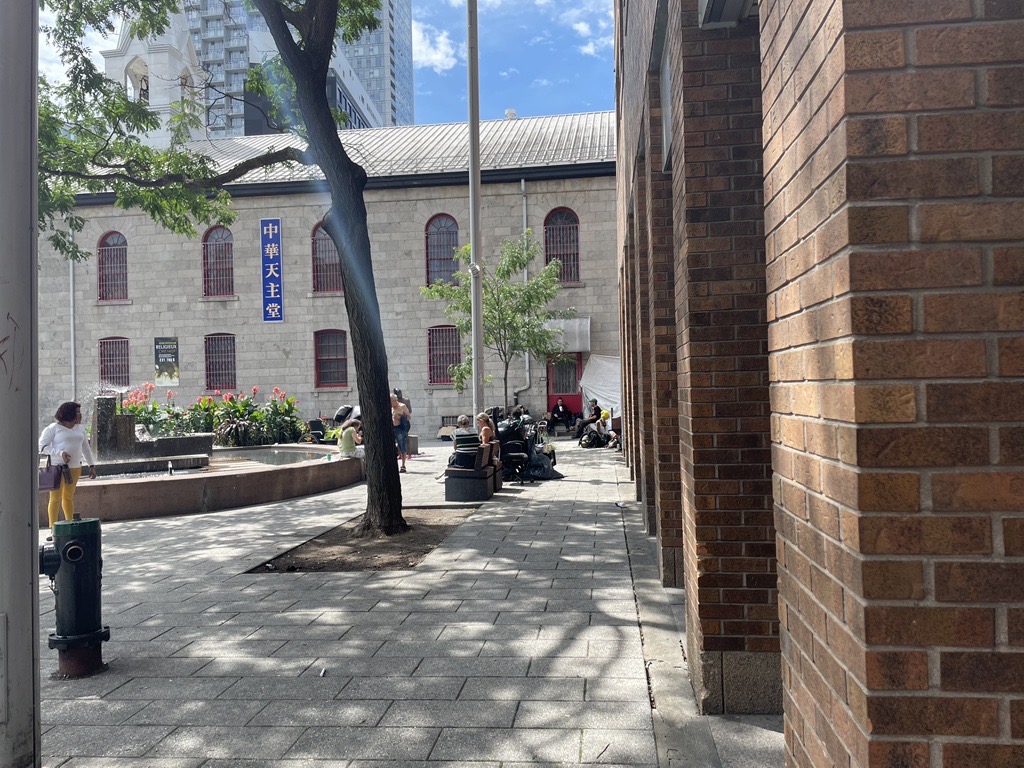
Homeless individuals wait outside a shelter in Chinatown which will be closing in October(Felisha Adam, CityNews Image)
“So we’ve been working with non-for-profit, police, also social workers, trying to find ways to make sure that you feel safe.”
Plante says it’s also important, at the same time, to make sure the city’s most vulnerable are being taken care of.
“How do we make sure that people have a roof on top of their head?” she said. “Because living in the street, having an opioid crisis is not what we want. Not here, not anywhere. So it’s kind of a different level conversation that we have.
“But I want to reassure anybody living and working in Chinatown that we take this very seriously.”
Last week, the City of Montreal announced a homeless shelter in the Guy-Favreau Complex would be relocated due to work that is needed in the building.
Some residents now worry about what’s to come and whether that will really address the root of the problem.
Plante adding that the location for a new shelter would have to be in the same area, or maybe just a little further out to not destabilize the vulnerable population and amplify the problem further.
At last month’s press conference, leaders in the community called for more action from municipal authorities to address the issues in the neighbourhood.
More specifically they want the creation of a task force to work with merchants and community associations for concrete action to improve security and prevent crime including more police presence, the installation of additional surveillance cameras, supporting victims of crime, among other things.
“These homeless and transient crowd are desperate and resorting to all kinds of aggressive behaviors towards the most vulnerable citizens of Chinatown – seniors, women, and children,” said Bryant Chang, vice-president of the Chinese Association of Montreal, on July 28.
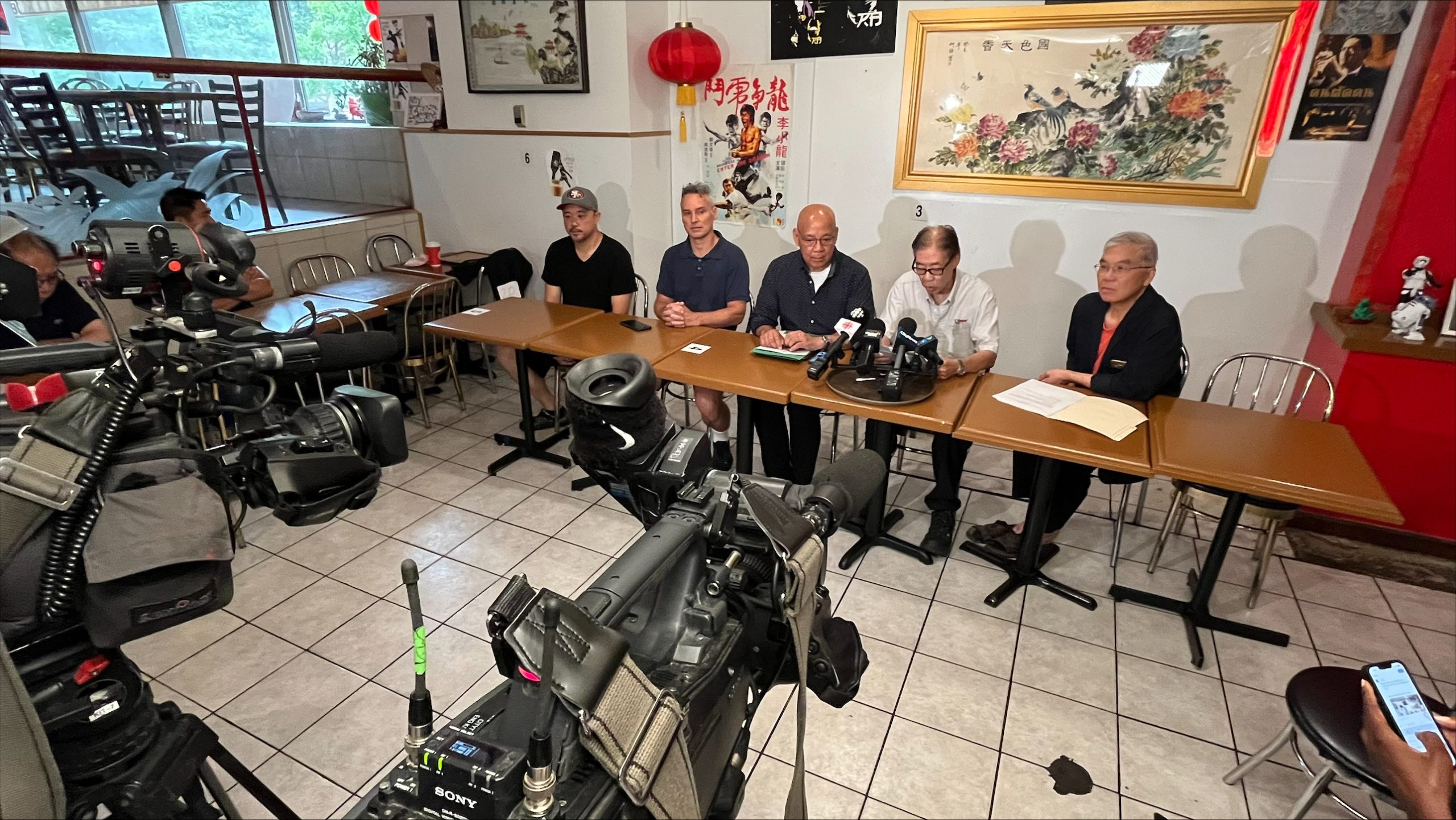
Chinatown residents are concerned about safety in the community. (Photo Credit: Martin Daigle, CityNews)
“Ultimately, somebody has to be held accountable,” says Fo Niemi who is helping to bring forward the voice of the community, he says the city must do more to take responsibility.
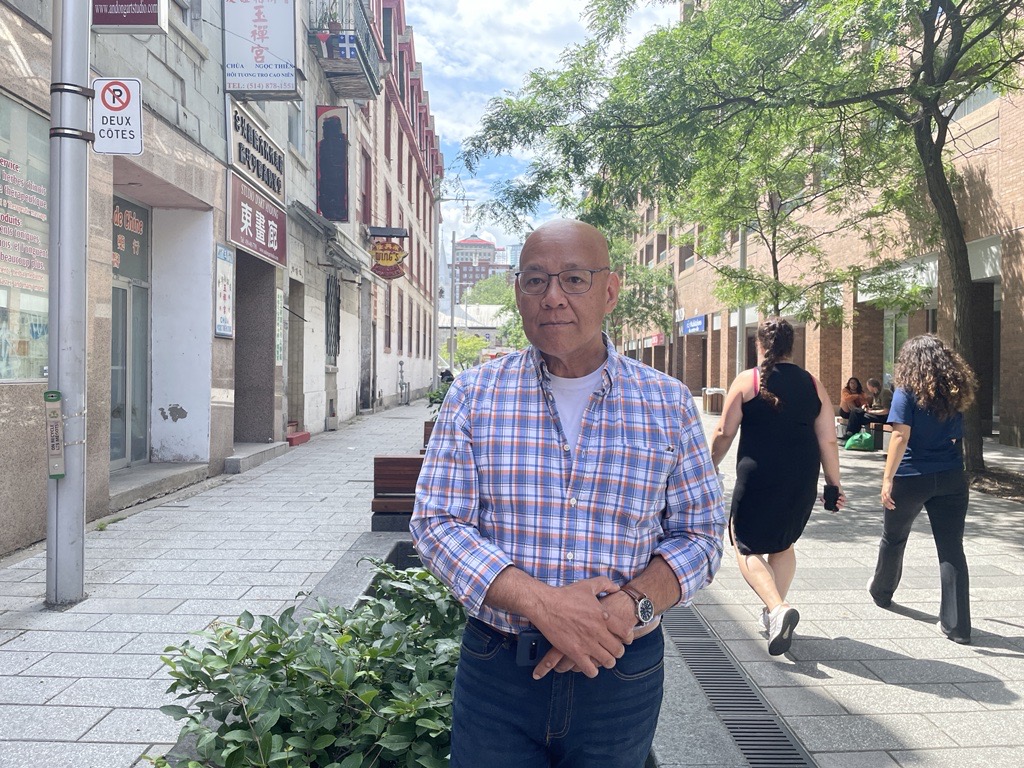
Fo Niemi who is helping to bring forward the voice of the community (Felisha Adam, CityNews Image)
“These are seniors who in their several days and somewhat in the eighties, and they have the right to live in peace and to live in safety. And when these rights are not violated, this why the legal action could be taken against the city for not doing enough,” he adds.
Community organizer Winston Chan says, while it will take time, more needs to be done to aid the problem in the long run not just by the city but also the province.
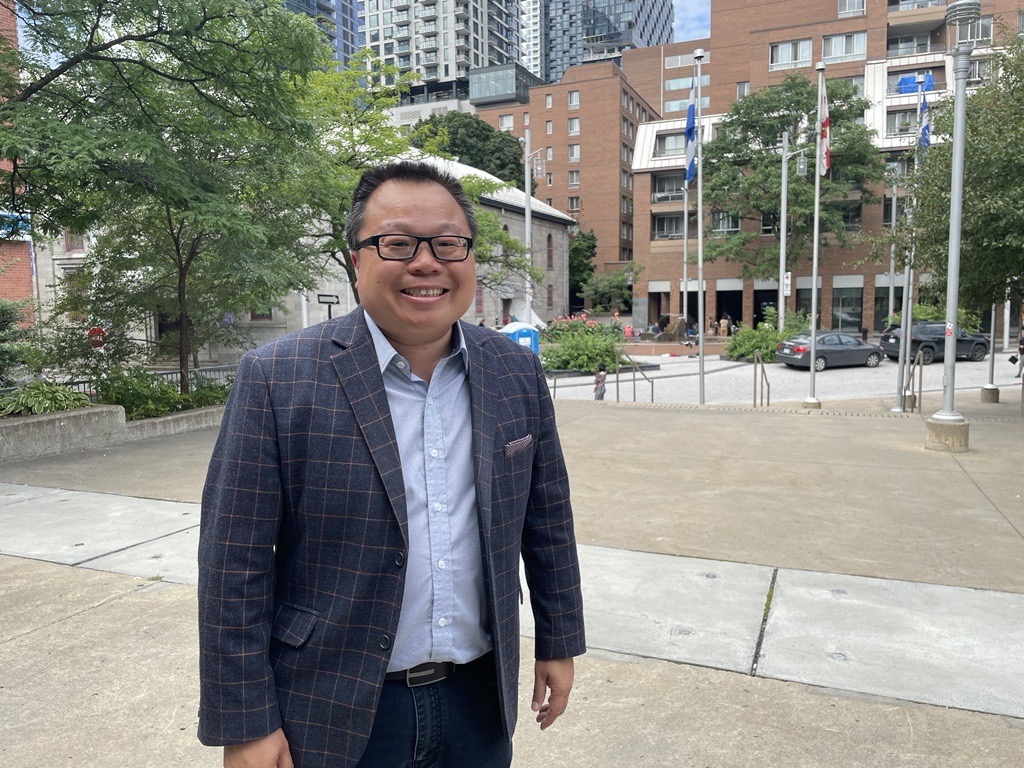
Community organizer Winston Chan says, more needs to be done to aid the problem in the long run not just by the city but also the province.
(Felisha Adam, CityNews Image)
“In the long term, it won’t solve, it won’t address the cause of the problem. We just address a symptom…we need a coordinated, well-funded, uh, action plan to solve this problem, which is, which includes the mental health crisis, the drug use crisis, and also the, the housing affordable housing crisis.”
They say the situation has worsened since the homeless camp under the Ville-Marie underpass was closed and an action plan was put in place to address the homelessness and crime situation in the nearby village.

